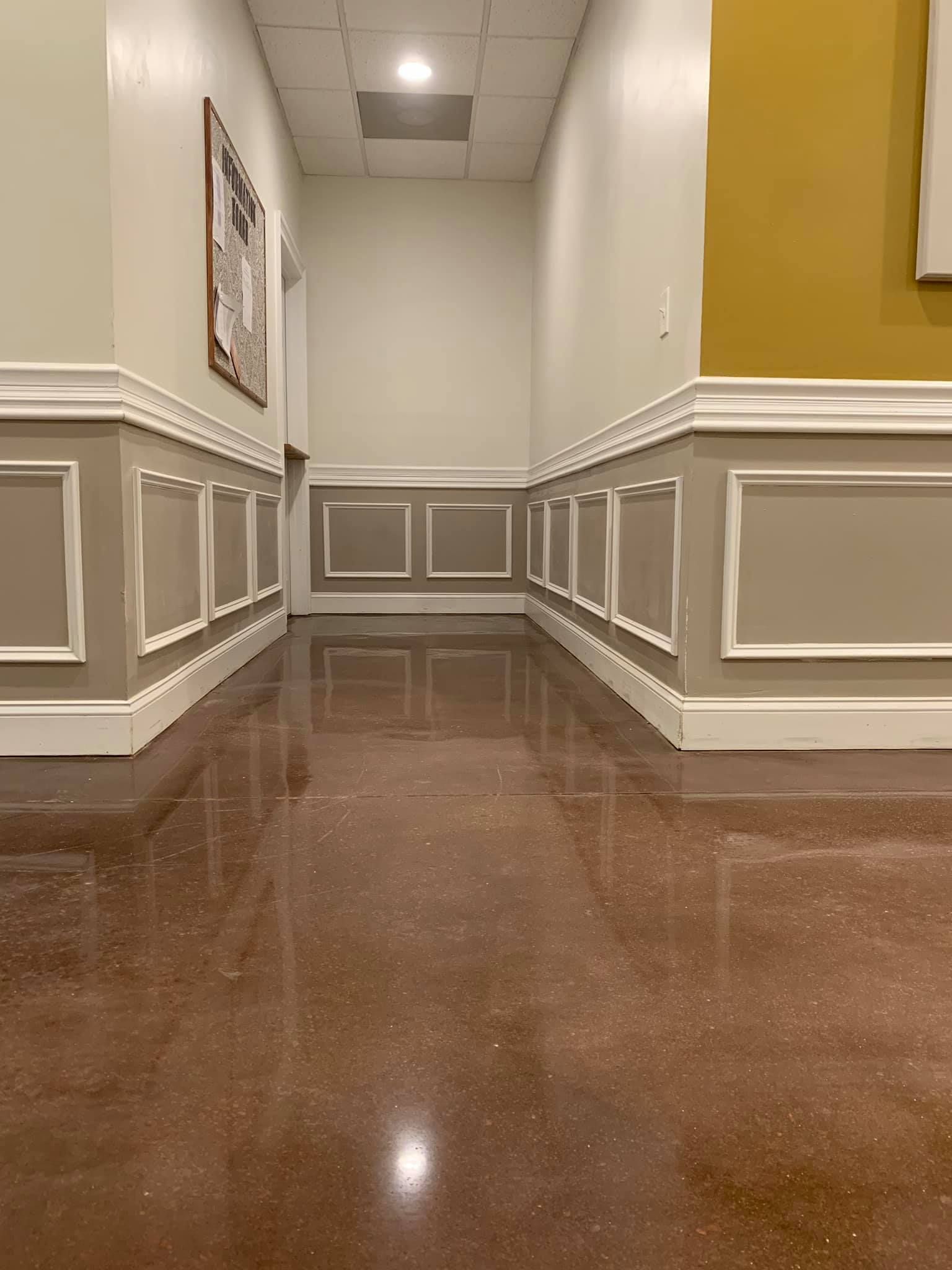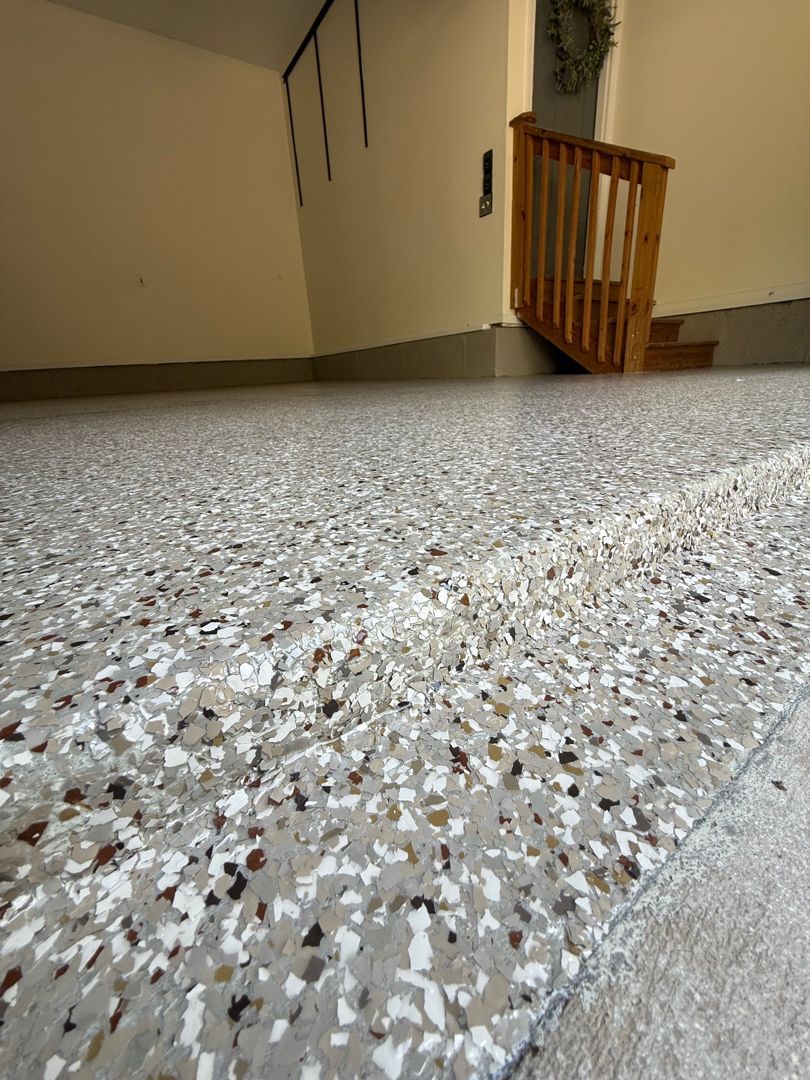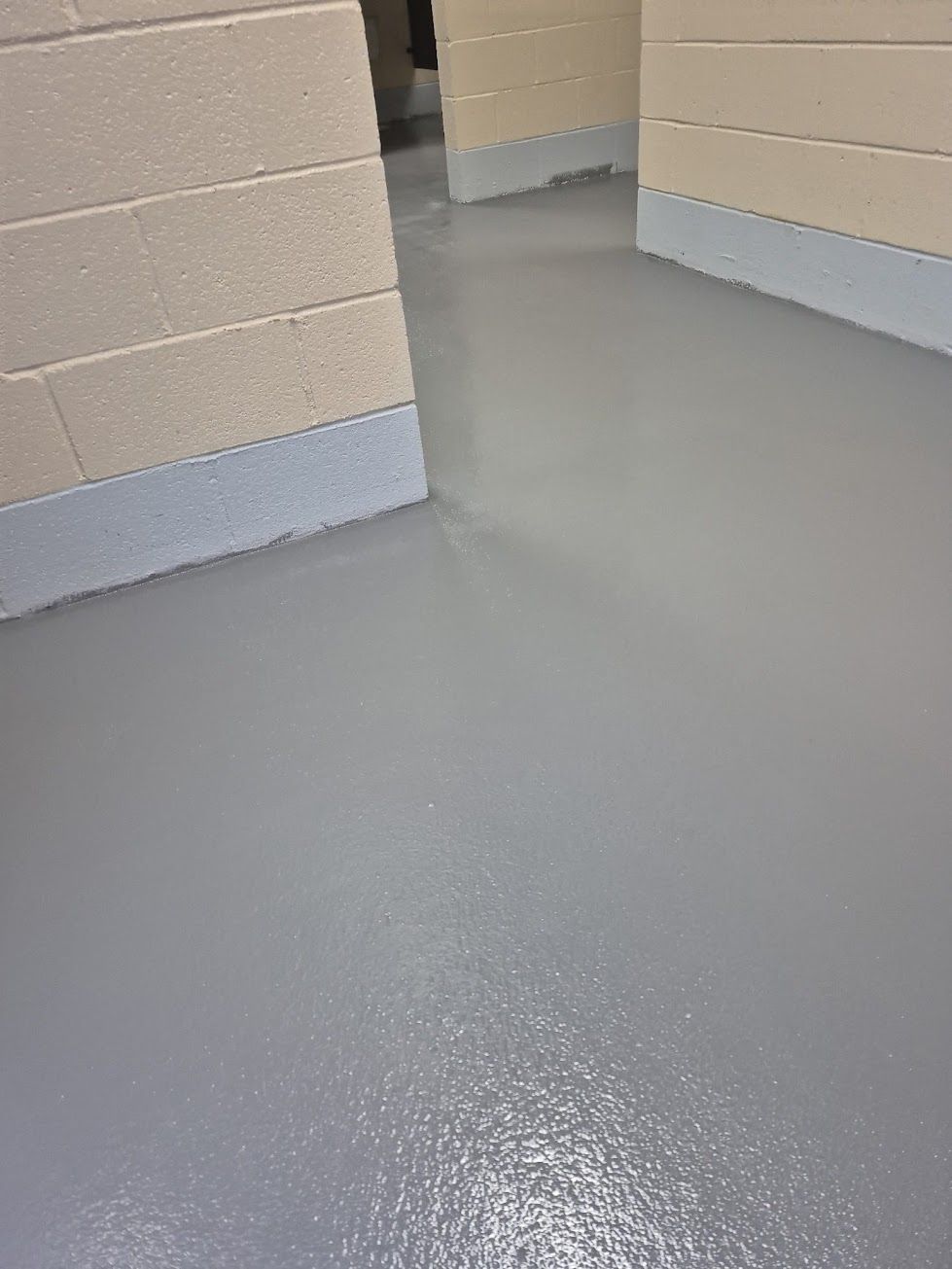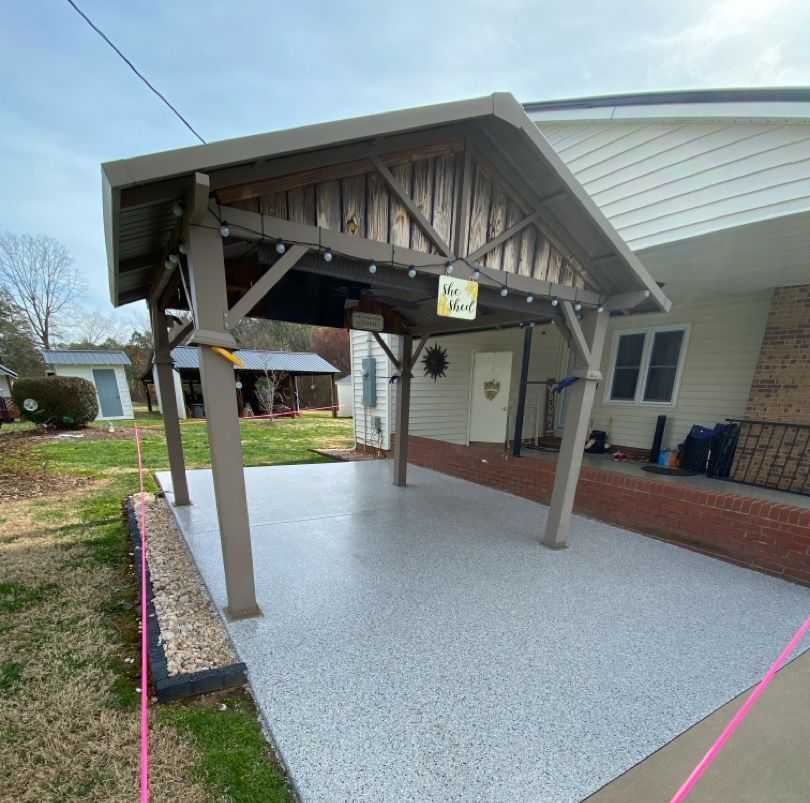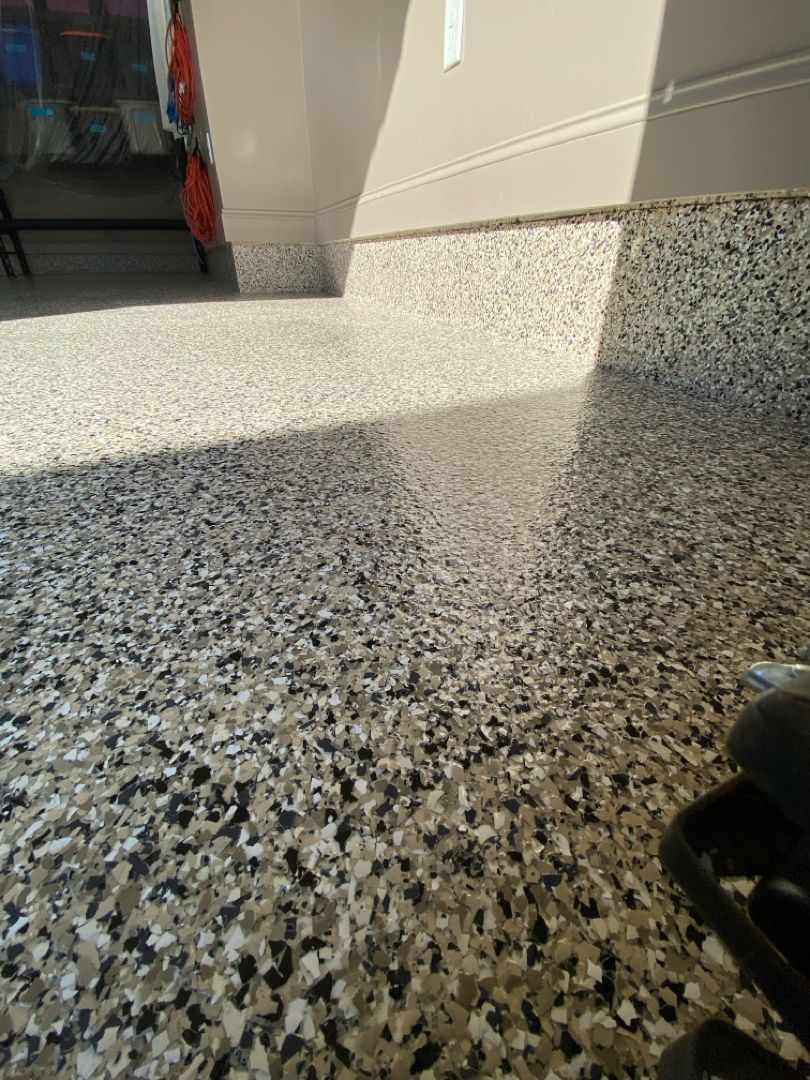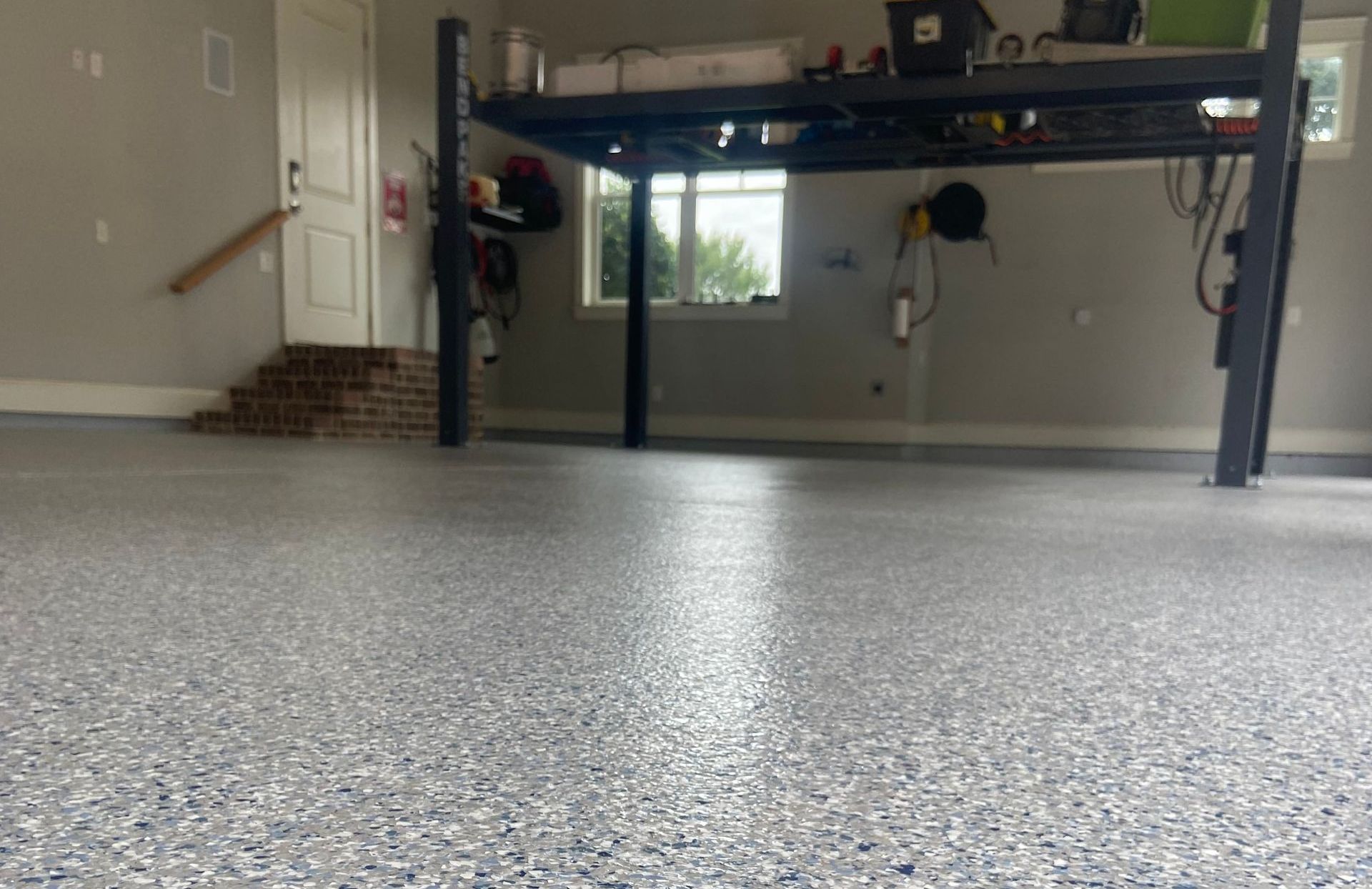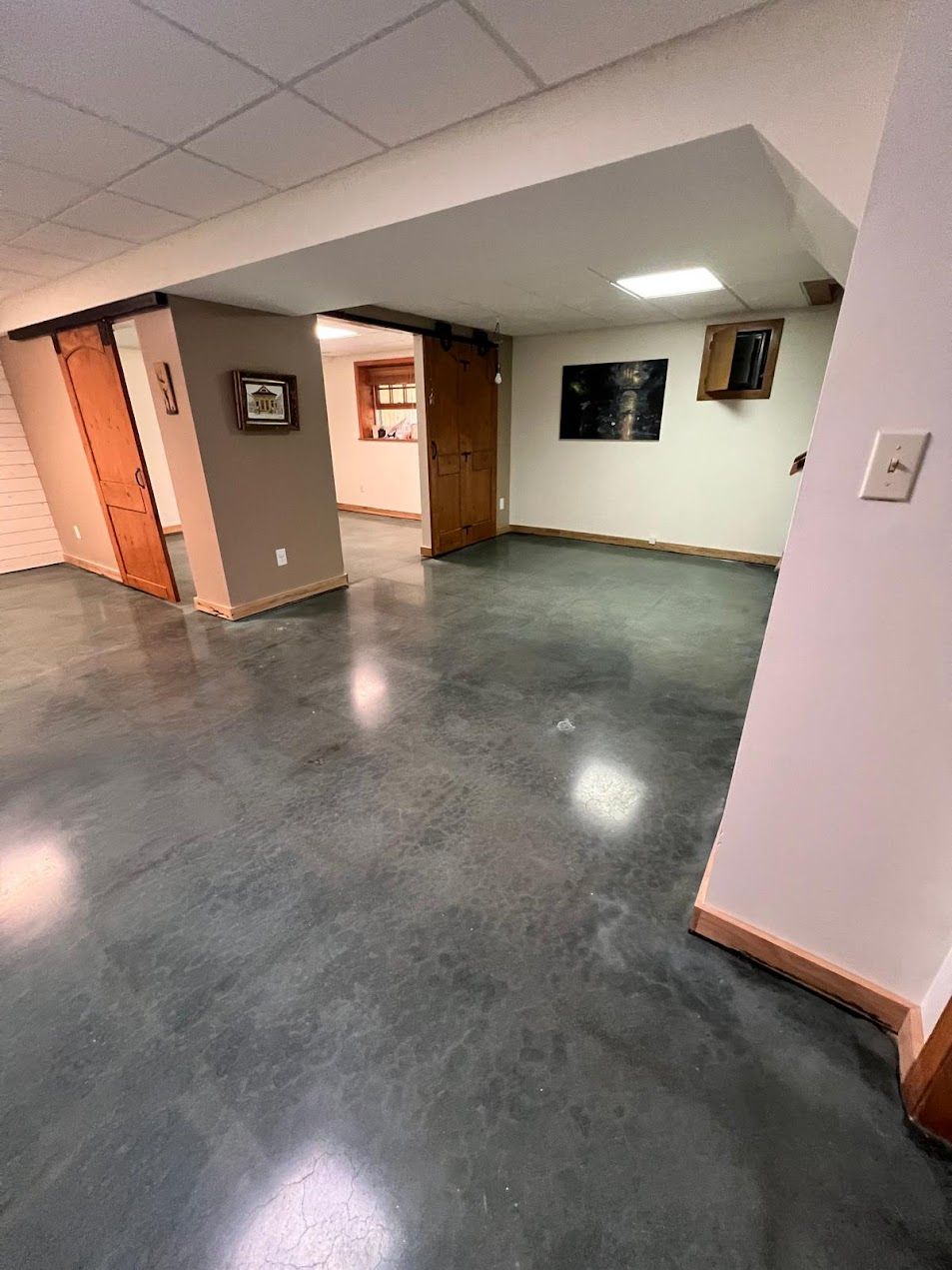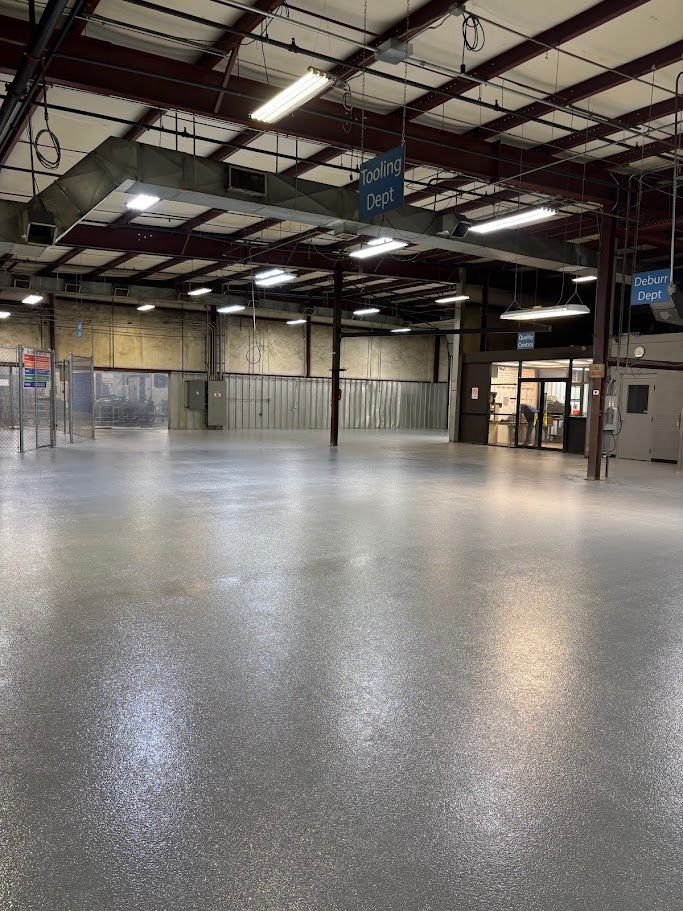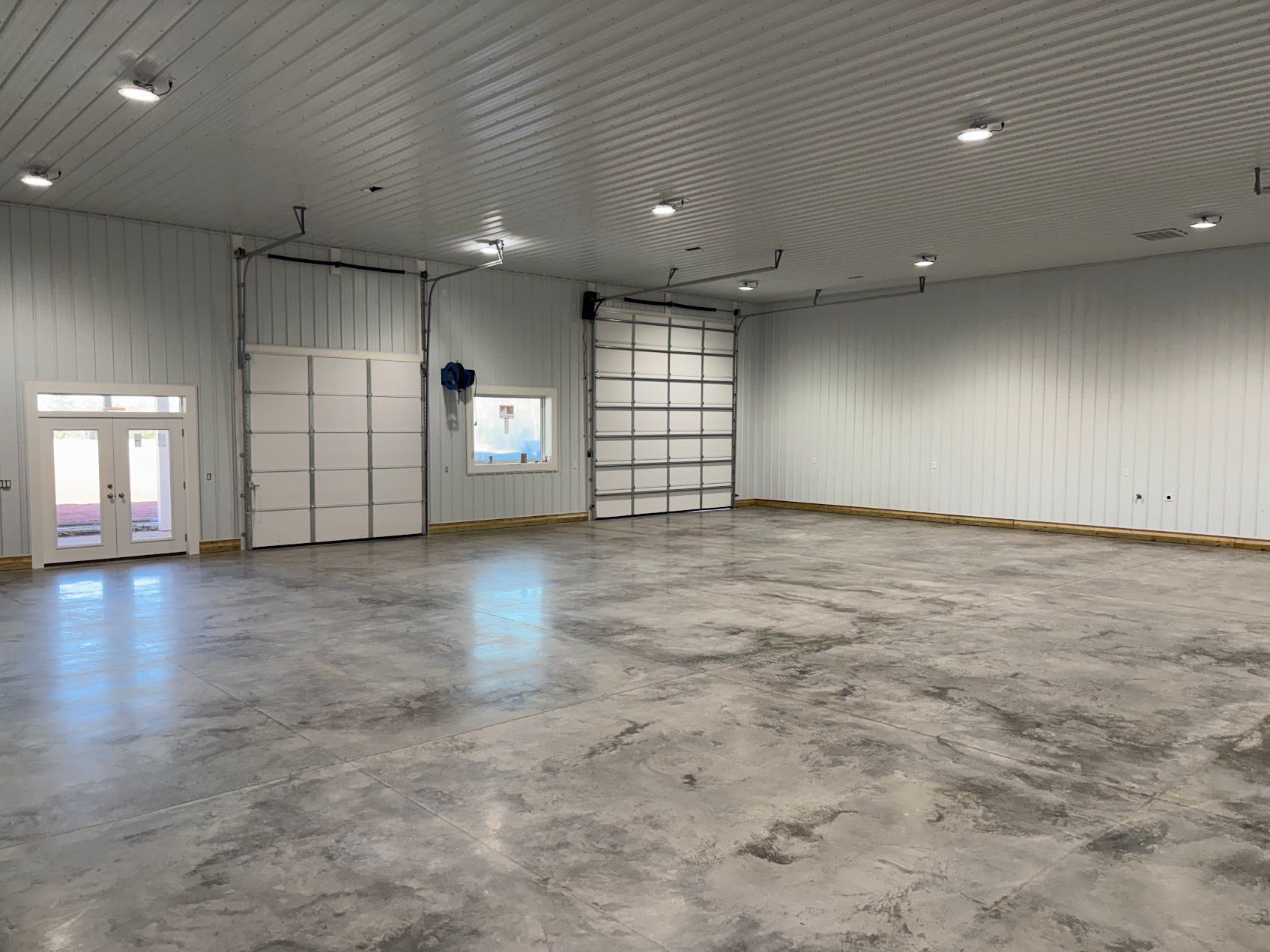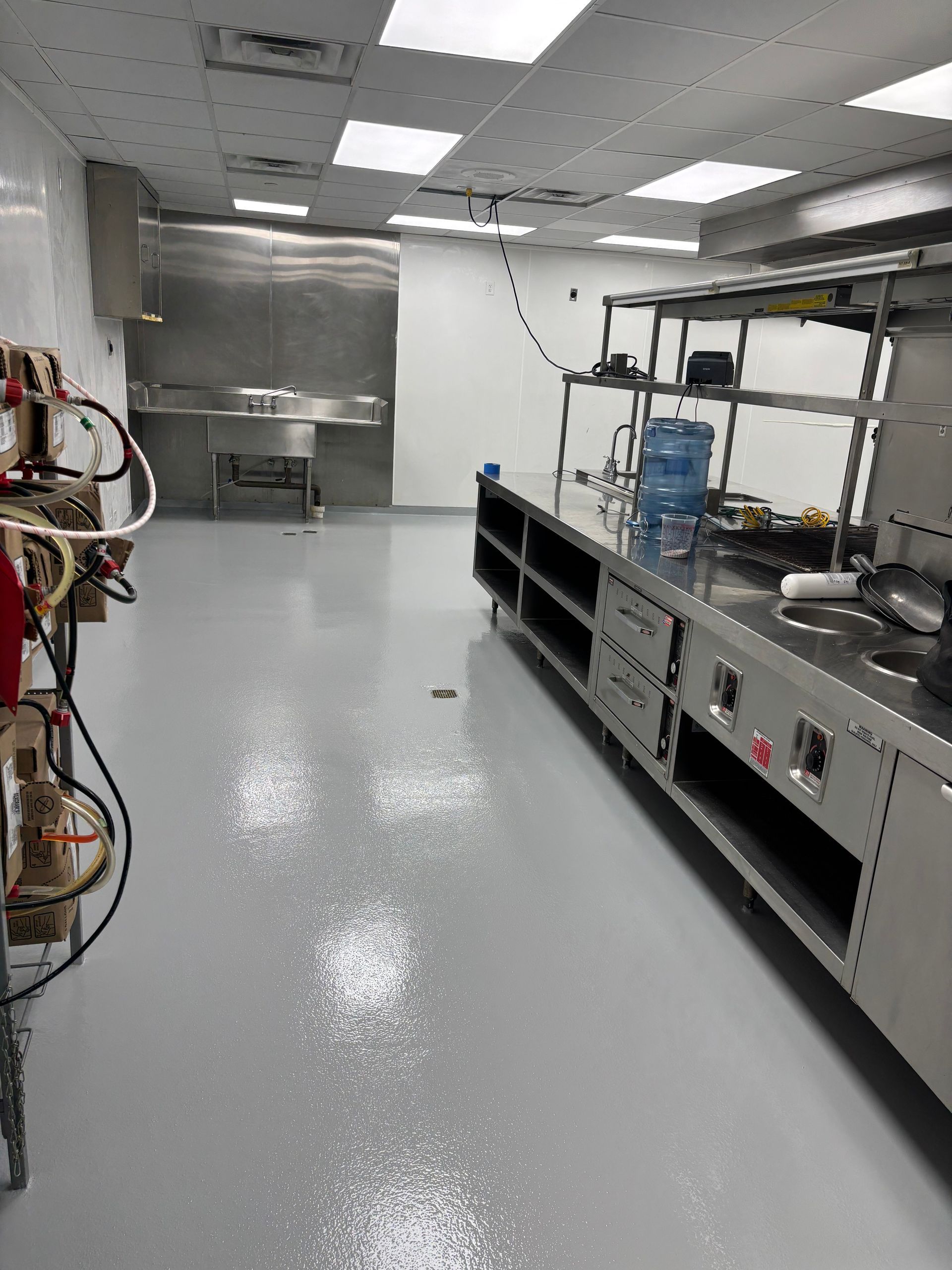Commercial Kitchen Floors: Making the Best Decision for Your Facility
A Complete Guide to Choosing Safe, Durable, and Compliant Flooring for Commercial Kitchens
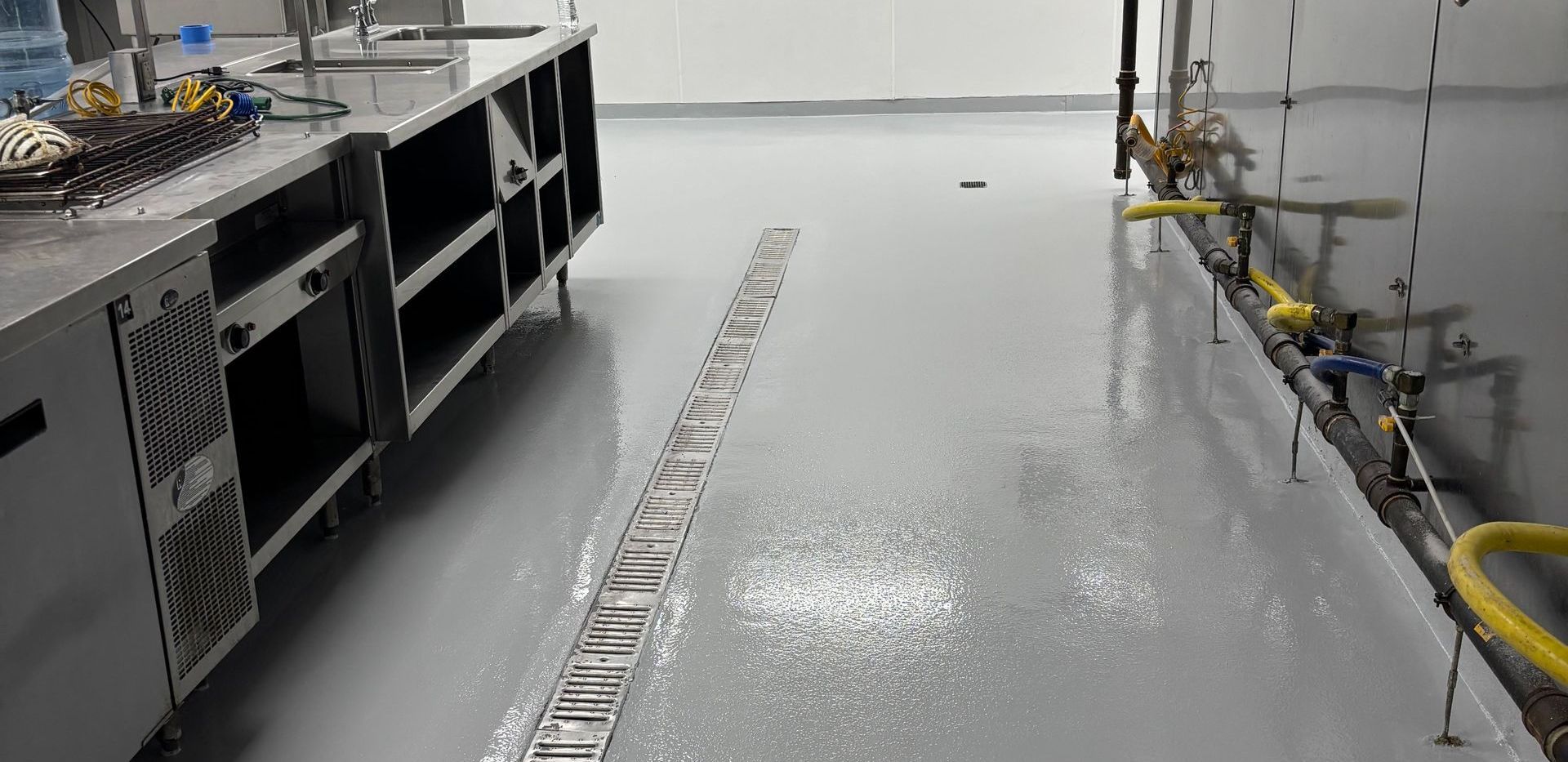
When it comes to running a safe, efficient, and code-compliant commercial kitchen, your flooring isn’t just a background detail — it’s a frontline defense. From constant foot traffic and spilled grease to hot pans and harsh cleaning chemicals, the demands on commercial kitchen floors are relentless. Choosing the wrong material can lead to safety hazards, costly maintenance, and even health code violations.
So how do you choose the best commercial kitchen flooring? Whether you're building a new restaurant or renovating an existing food service facility, this guide will help you navigate your options. We’ll break down the most durable, hygienic, and cost-effective flooring systems available — and answer the most frequently asked questions from chefs, facility managers, and business owners like you.
Read on to learn which flooring solution is right for your kitchen and how to make a long-term investment that supports safety, cleanliness, and performance.
📌 Frequently Asked Questions About Commercial Kitchen Flooring
1. What is the best flooring for commercial kitchens?
The best flooring for commercial kitchens is typically epoxy flooring or urethane cement. These options offer superior durability, slip resistance, and ease of cleaning, making them ideal for high-traffic, high-moisture environments. Epoxy is particularly popular for its seamless surface and chemical resistance, while urethane cement holds up well under extreme temperature changes.
2. Is epoxy flooring safe for commercial kitchens?
Yes, epoxy flooring is safe and often recommended for commercial kitchens. When installed with non-slip additives, epoxy provides excellent traction to prevent slips and falls. It's also non-porous, making it resistant to bacteria growth and ideal for maintaining strict health codes.
3. How long does commercial kitchen flooring last?
High-quality commercial kitchen floors like epoxy or urethane cement can last 10–20 years or more with proper maintenance. Longevity depends on foot traffic, heat exposure, chemical use, and how well the floor is cleaned and maintained.
4. What flooring is OSHA compliant for kitchens?
To meet OSHA flooring standards, a surface must be slip-resistant, easy to clean, and free of trip hazards. Epoxy flooring with an anti-slip finish or quartz broadcast system is a common solution for achieving OSHA compliance in commercial kitchens.
5. Can commercial kitchen floors handle grease and hot spills?
Yes, when properly coated, commercial kitchen floors can withstand grease, oil, hot water, and chemical spills. Urethane cement and novolac epoxy are often chosen in environments with extreme heat or heavy chemical exposure due to their thermal shock and chemical resistance.
6. How much does it cost to install commercial kitchen flooring?
The cost varies based on materials, prep requirements, and square footage. On average, commercial kitchen epoxy flooring ranges from $6 to $12 per square foot, while urethane cement can range from $10 to $20 per square foot. For an accurate quote, it’s best to schedule a site visit with a professional installer.
7. How long does it take to install commercial kitchen flooring?
Most installations can be completed in 1–3 days, depending on the size of the space and floor preparation needs. The floors will then need a minimum of 24 hours before return to service.
8. Can I install new flooring over existing tile?
Yes, but it depends on the condition of the existing substrate. Urethane cement floors and epoxy mortar floors can often be applied over tile if the surface is properly prepared and structurally sound. Cracks, grease, or loose tiles must be addressed before installation.
9. How do I maintain a commercial kitchen floor?
Routine cleaning with non-abrasive, pH-neutral cleaners is recommended. Avoid acidic products or harsh chemicals that can damage the coating. Regular inspections and touch-ups can extend the life of your floor and keep it looking like new.
10. What certifications or approvals should I look for in kitchen flooring?
Look for flooring systems that meet USDA, FDA, and NSF standards for food-safe environments. Installers should be certified and experienced in commercial kitchen epoxy or urethane installations to ensure compliance and performance.
👇 Ready to Upgrade Your Commercial Kitchen Flooring?
Choosing the right flooring is a critical decision for your kitchen’s safety, efficiency, and longevity. If you're still unsure or have specific questions about your facility, contact United Floor Coatings for a free consultation or explore our blog for more expert insights.
Stay informed. Stay compliant. Stay protected.
